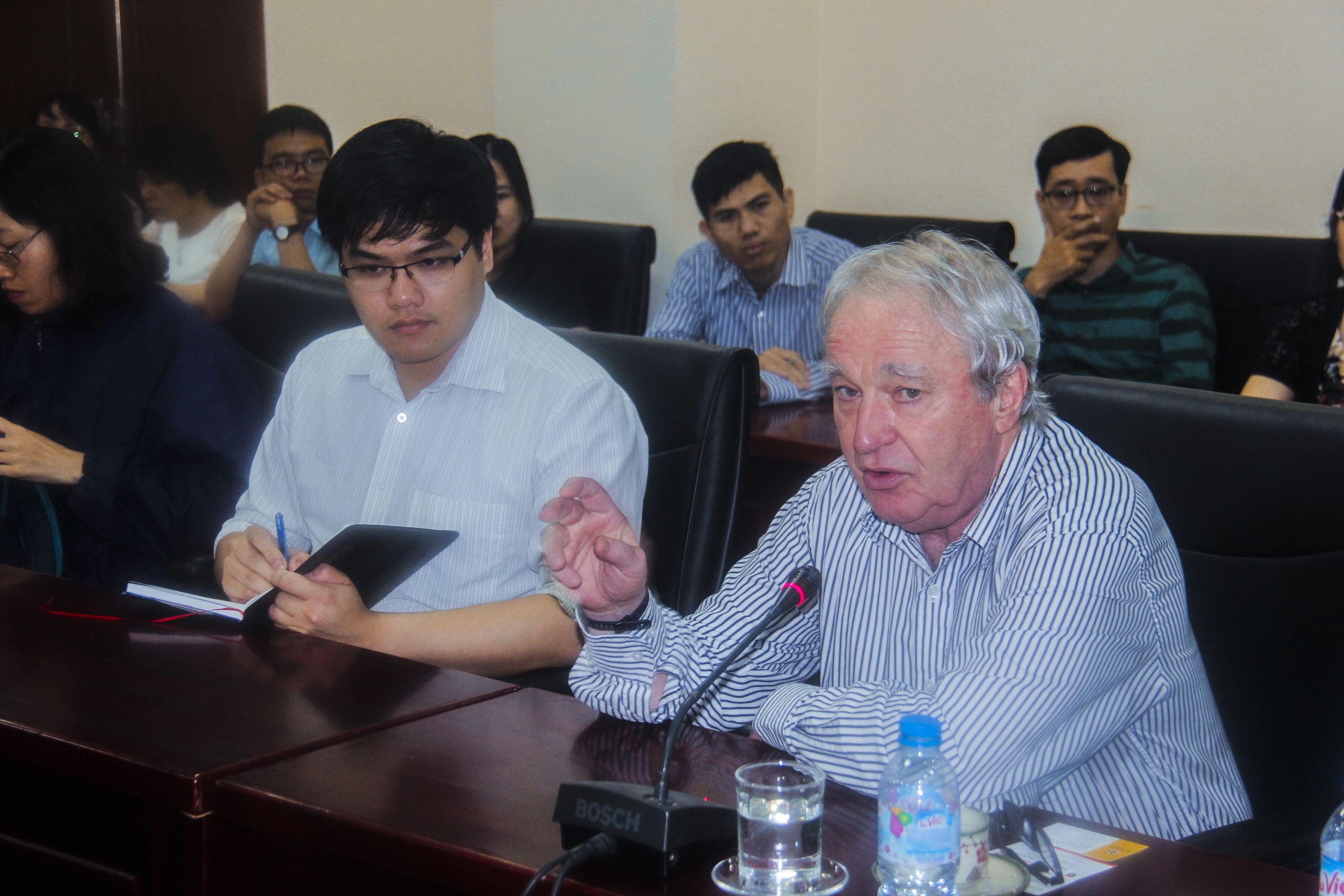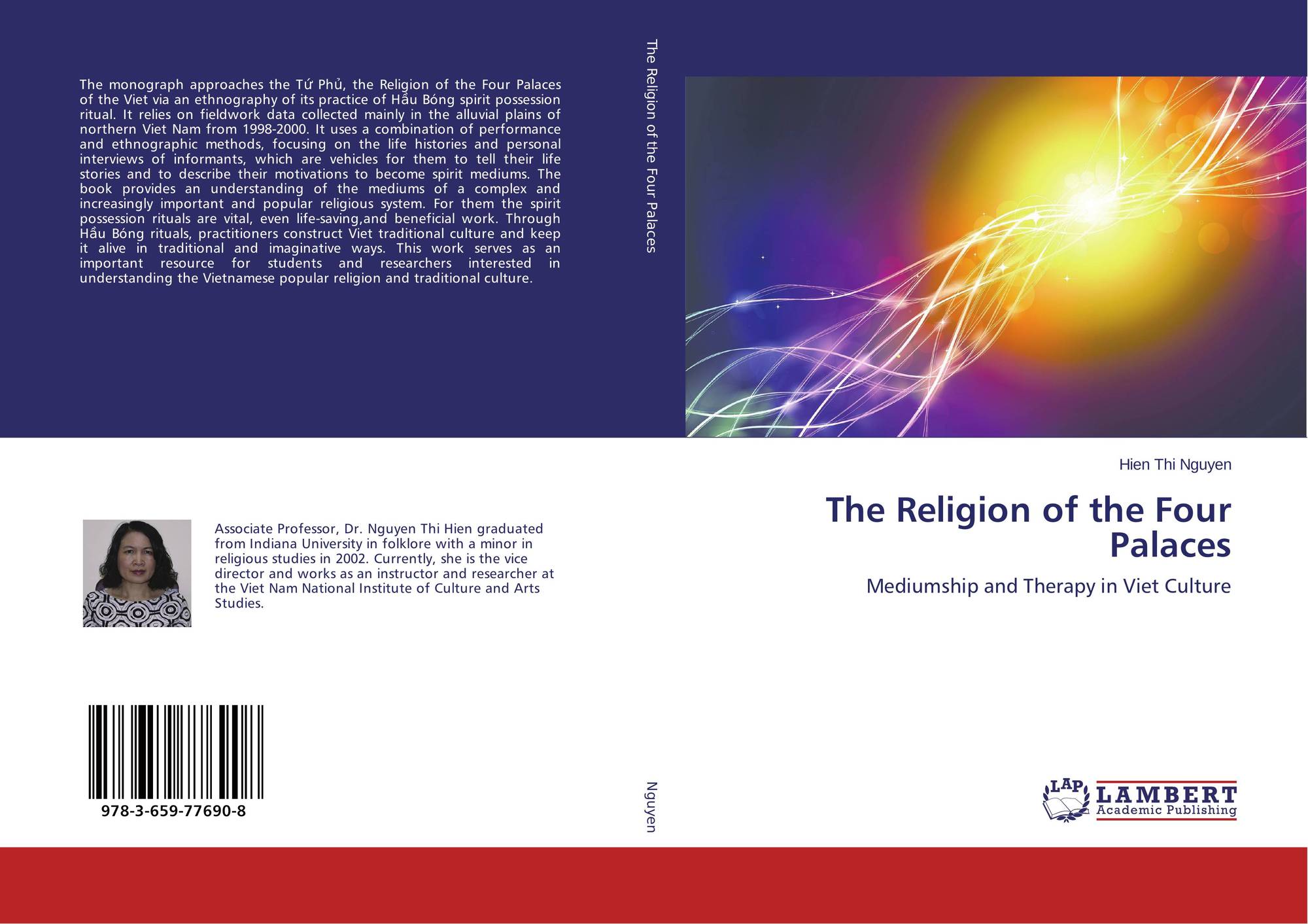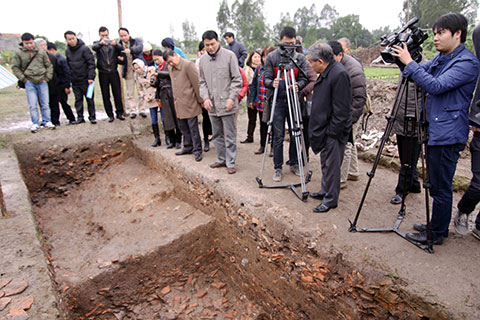The changes are still slow.
International publications by Vietnamese social science and humanities researchers before the 2000s were not only monotonous and meager in quantity but also weak in quality. The majority of research published in prestigious international journals was conducted by Vietnamese graduate students and Vietnamese people living abroad. For decades, we did not demand that scientists publish internationally, and there was a tendency to disregard international publications in social sciences due to the irrational belief that only those sharing the same ideology and political views as the West could publish internationally.
In fact, we had been out of the international academic arena for too long and only woke up in the early 2000s. Though belated, this shows a significant shift in perception, from denial and disdain to the recognition that only international publications can establish the true value of Vietnamese social sciences and humanities.
Looking at statistics from various sources, both at the macro and micro levels, we see positive changes as the number and quality of internationally published scientific articles have steadily increased over the past decade. Comparing Vietnam's ISI publications to other ASEAN countries, we see a steady increase in international ISI publications, from 190 articles (2013) to 487 articles (2018), ranking behind Singapore, Malaysia, and Thailand. Vietnam's ISI publication ranking over the past five years (2013-2018) has shifted from 66th (2013) to 49th globally (2018), but it still lags behind Singapore, Malaysia, and Thailand.
A Scopus data analysis team from Tay Thanh University collected information on 412 Vietnamese scientists who have published scientific papers on the Scopus system over the past ten years (2008-2018).[1]This group compared information gathered from various sources to understand the authors of the articles and the publication situation. This provided some noteworthy information about Vietnamese researchers with scientific publications on the Scopus system. For example, authors with international publications on Scopus are mainly in the group with 15 to 25 years of experience, while the group over 40 years old has the fewest international publications; the average output over the past 10 years is only 3.6 articles/author; up to 75% of authors have never published any independent research in the past year. The leading role of authors in the articles is low, at only 1.77 articles…[2]

Recently, many institutions and universities have organized workshops and training courses to enhance the capacity for international publication. In the photo: Professor Mark Turner from the University of New South Wales training faculty and staff of the university in April 2018.
Studying the specific case of the University of Social Sciences and Humanities under the Vietnam National University, Hanoi, can provide us with a clearer understanding of the trend of international publications in the field of social sciences and humanities. Statistical data over a nine-year period (2010-2018) shows that the University of Social Sciences and Humanities has made a spectacular leap forward in international publications, from only 7 international publications in 2010 to 79 in 2018. Notably, the number of articles indexed in ISI/Scopus has increased significantly, from none in 2010 to 22 in 2018, indicating that international publications have not only increased in quantity but also in quality.
However, the reality is that while the number of publications has increased, it remains primarily concentrated among a select few authors who have received training or further education abroad, mostly in the 30-50 age group, and who regularly publish internationally. For example, in the 2017-2018 academic year, the year with the highest number of international publications, only 54 faculty members participated in writing (as authors or co-authors) 79 international publications, averaging 1.5 articles per author, although some published 3 to 4 international articles per year. Compared to the potential of the university, which comprises 344 lecturers, including 70 associate professors, 5 professors, 133 with doctoral degrees, and 147 with master's degrees, the number of those with international publications is still very modest.
However, these changes do not seem to have spread widely within the academic community. Among the disciplines with the lowest number of publications on the Scopus system, social sciences rank second to last, with 13 out of 14 disciplines having the fewest articles (Duy Tan University Research Group, 2018).[3]Sadly, many social science researchers remain unfamiliar with international publications, not only lacking any understanding of international scientific journals but also struggling to even write two articles for domestic journals each year (Nguyen Thi Hien, 2016).[4]

The publication of "The Religion of Four Palaces: Mediumship and Therapy in Viet Culture" by Assoc. Prof. Dr. Nguyen Thi Hien, LAP Lambert Academic Publishing, in 2015.
What is the cause?
Based on the opinions expressed by scientists, their experiences, and the experience of the Hanoi University of Social Sciences and Humanities, we tentatively attribute the causes to the following basic groups.
The first,The root cause of the poor international publication rates in the social sciences and humanities lies in the training process for researchers, from undergraduate to postgraduate and doctoral levels. Although the development of research universities has been discussed for a long time, in most universities, the training programs and methods remain largely unchanged from decades ago. We haven't truly shifted our training methods towards research, instead focusing heavily on one-way information and knowledge delivery. Students often passively absorb knowledge, exhibiting little creativity, limited interaction between students and lecturers, and, most importantly, a lack of critical scientific thinking. Opportunities to access scientific information sources outside of lectures are very limited, while research skills and methods, including scientific writing, are often neglected in many subjects and disciplines. Because they lack experience in conducting scientific research, presenting research results, and writing scientific papers, they often feel very confused when they start doing scientific research after graduation.
Monday,The importance and urgency of international publication have not been seriously recognized at the level of science administrators and researchers. To date, apart from the NAFOSTED Foundation and a few major universities that have been very assertive in requiring research grant recipients to publish internationally,[5]Other scientific funding agencies still seem to view this requirement as merely a formal reference criterion, even when it has been lowered to the lowest level. Many scientific projects often focus on solving specific problems of the industry or unit, while the projects are fragmented, failing to form a coherent scientific whole, thus eroding scientific creativity and the accountability of the project leaders. The reward measures (both material and spiritual) in some scientific institutions and universities are primarily for encouragement, rather than becoming a nationally approved and implemented policy throughout the entire research and training system.
Tuesday,Foreign language proficiency is often cited as a major barrier to international publication. This is a reality that cannot be ignored. The majority of researchers in scientific institutions and universities today are trained domestically. They have limited access to foreign resources, participate in few scientific conferences and international collaborations, and therefore lack awareness of the global scientific community and are not up-to-date on discussions or new discoveries in their research fields. Due to infrequent exposure to the international academic environment, a feeling of alienation and hesitation towards international publication is understandable. In recruitment policies for scientific staff and doctoral candidates, foreign language proficiency is often included as a mandatory requirement, but it remains at a low and largely formal level.
Wednesday,The poor state of domestic scientific journals significantly impacts the requirement for international publication. Domestic scientific journals are lax in their selection, peer review, editing, and quality improvement processes. Editorial boards and editors often scrutinize and remove elements deemed "politically sensitive" rather than focusing on the professional content when deciding whether to publish an article. Articles often hesitate to engage in scientific debate and fail to integrate their research into common concerns discussed by other scholars. The lack of international standards and the limited innovation in domestic scientific journals create a rut, a lax mindset in writing, leading to a perception of uniqueness and Vietnamese specificity instead of adhering to international standards and practices. This results in scientific publications being merely superficial and lacking genuine quality.
FinalInternational cooperation and fostering an academic atmosphere among professionals are crucial. In reality, we organize numerous scientific conferences, workshops, and seminars annually with the participation of international scholars. However, these activities seem to be heavily focused on formality rather than practical effectiveness, namely the output of scientific products. The "marketplace in the morning, empty in the afternoon" phenomenon is observed in many scientific conferences. Researchers attend to speak and leave, with very little scientific debate or critique, making the conferences boring and pointless. Experience shows that collaborative research projects involving international scholars (leaders, participants, or direct advisors) often yield high results, leading to international publications. However, perhaps due to limited funding, these types of projects are usually supported by foreign sources, while domestic funding remains very hesitant.

Excavation of the Luy Lau site. Photo: Nhu Thuan
Proposed solutions
How can we address the root causes of the aforementioned weaknesses? In our opinion, there are five groups of solutions that need to be continued and expanded.
First,To be fair, over the past decade, the policy of rewarding international publications with cash incentives has yielded positive results. The University of Social Sciences and Humanities, since 2010, has had a policy of rewarding publications, providing 5 to 10 million VND per internationally published article and over 1.5 million VND per article published in highly indexed ISI and Scopus journals. In 2018, the university decided to provide 100 to 200 million VND in support for internationally published monographs and scientific proceedings. Thanks to such timely and strong policies, the quantity and quality of publications from the university have increased rapidly in recent years. However, it is important to recognize that this solution needs to be supported by a series of other regulations such as salary increases, appointments to professorships and associate professorships, funding for scientific research projects, and participation in international conferences and academic exchanges to maintain a sustainable impact. Many universities in the ASEAN and East Asian regions also use this economic leverage to promote international publications. For projects receiving public funding, there needs to be a specific policy requiring researchers, upon receiving funding, to commit to publishing their results in international scientific journals instead of simply reviewing and shelving their work as has been the practice. Of course, scientific topics related to national security require separate regulations.
Monday,In the long term, a fundamental change is needed in university education, shifting towards a research-oriented approach instead of maintaining the outdated one-way knowledge transmission method. Students from their third year onwards should be encouraged to undertake scientific projects within the framework of their training using a "research-oriented" approach.project-based learningStudents learn and practice research and scientific reporting under the guidance of professors. Through such research projects, students learn methodology, access new information, learn how to engage in scientific debate, and gain sufficient confidence to participate in scientific projects after graduation. Besides formal training, universities, research institutes, and scientific journals should organize regular or frequent training courses on research methodology and writing skills according to international standards for research staff. Reputable international experts could be invited to share information and provide guidance on necessary skills.
Tuesday,Domestic scientific journals need to shift strongly towards internationalization in terms of content, peer review, editing skills, and increased international exchange through various academic channels. This approach will help overcome the laxity often seen in scientific publication practices and train researchers to write articles according to international standards, so they are not too unfamiliar with international practices. Furthermore, the management of scientific journals should be under the purview of the Ministry of Science and Technology instead of the current Department of Press and Propaganda. Scientific journals have stringent professional requirements and differ from the propaganda activities of the media; therefore, they should be managed by specialized scientific councils.
Wednesday,Besides academic content requirements, there is a need for language support policies for international publications in the social sciences and humanities. Writing in one's native language is already difficult; writing in a foreign language to convey one's knowledge to the international scientific community and for foreigners to understand is a significant challenge, even for those with formal training abroad. Social science is not just a story, but an idea, a thought, an argument, and a debate using scientific language. High-citation index journals never spend money on printing poorly written and poorly written articles. Typically, journals published in English require articles to be proofread by experts who speak English as their native language. Experience from some Southeast Asian countries such as Thailand, Malaysia, China, and Japan shows that before submitting articles to a journal, they are proofread and edited by a native speaker before being sent to the peer reviewers. After an article is accepted for publication with a request for revisions, someone fluent in the language of the article is needed to help edit it to standard language.
Thursday,Strengthening international cooperation at various levels, from participating in international scientific conferences, exchanging expertise, organizing training courses on paper writing to collaborating on joint research, is the quickest way for Vietnamese scientists to learn the necessary skills and work in an academic environment according to international standards. Besides seeking external scientific funding, domestic funding sources should also have policies to encourage international cooperation, expanding international networks in science, especially international publications. NAFOSTED's policy on supporting scientists' participation in international scientific activities demonstrates a good practice that should be replicated.
Conclude
Scientific publication is essentially the final stage in a series of research activities, but international publication is a crucial and necessary step in affirming professional quality and scientific transparency. For social sciences, international publication is not only about distributing Vietnamese knowledge to the scientific community, but also about introducing Vietnam and its people to the world, and showing gratitude to those who have paid taxes to fund scientific activities. This is precisely the political responsibility of a scientific researcher.
To improve the quantity and quality of scientific publications, a series of complementary solutions and long-term efforts are needed, not only from scientific management agencies but also through the cooperation and self-affirmation of researchers themselves.
|
Types of publications in the Social Sciences and Humanities International publications in the field of Vietnamese social sciences and humanities not only have the responsibility of introducing the knowledge produced by Vietnamese scientists to the global scientific community, but also of introducing the history, culture, country, and people of Vietnam to the world based on high-quality scientific research. Therefore, the forms of scientific publication by researchers in the field of social sciences and humanities can be identified in the following types: 1) Articles published in scientific conference proceedings, research still in the process of completion but printed as research papers for the scientific community to comment on (working papers). This group also includes book reviews or critical literature overviews. Most articles published in these forms have undergone peer review, but to a moderate degree, mainly internal reviews within the research group or publishing institution. It should be noted that these types of articles, although not yet official, often provide the quickest updates on the research results of individuals or groups to the reader. 2) Scientific articles. 3) Book chapters published in an edited volume on a specific topic. 4) Monographs focusing on a specific topic, often the result of in-depth and long-term research by scientists over many years. 5) Reference books, textbooks, lectures, and encyclopedias or specialized dictionaries. 6) Finally, there are critical analyses or policy recommendations (policy relevance papers), developed based on applied research to serve development programs and policy directions of the government or community. These articles may be published in prestigious scientific journals or popular magazines with a large readership. It is usually subject to peer review and editing within the journal, but it updates on topical issues, often attracting a large readership and having a significant social impact. One important consideration when considering international publication in the social sciences is the social impact of articles and publications in open-access journals. As mentioned, international publication is necessary because it serves as a kind of certification affirming the scientific value and significance of a research work. However, if a social science and humanities article published in a Web of Science (ISI) or Scopus journal lacks citations or is only read by a few people in a narrow field, its social impact is limited to the professional community and has little broader societal reach. For social sciences and humanities, especially articles on social critique and policy recommendations, the social impact of an article will be greater if it is read by a wider audience. |
Article published in Tia Sang Magazine, issue 04 - February 20, 2019
[1]Interdisciplinary Social Research Center (ISR), Tay Thanh University. 2018. An initial overview of international publications in the field of social sciences and humanities;http://tiasang.com.vn/-quan-ly-khoa-hoc/Buc-tranh-so-khoi-ve-cong-bo-quoc-te-trong-linh-vuc-KHXHNV-10965.
[2]Interdisciplinary Social Research Center ISR, Tay Thanh University. 2018 (cited above)
[3]Duy Tan University Research Group, 2018. Vietnamese universities through international publications: A look from Scopus data.PioneerAugust 16, 2018.
[4]Nguyen Thi Hien, 2016. Social Sciences and Humanities Research: Reasons for Difficulty in International Publication.Light,September 29, 2016.
[5]After 10 years of operation (2008-2018), NAFOSTED has funded nearly 2,800 science and technology projects and supported 850 national science and technology capacity building activities. Approximately 4,000 ISI articles (accounting for about half of the total number of internationally published ISI articles nationwide over the past 10 years) are the result of projects supported by the Fund. This information is based on NAFOSTED's report summarizing its 10 years of operation.
Author:Prof. Dr. Pham Quang Minh, Assoc. Prof. Dr. Nguyen Van Chinh
Newer news
Older news